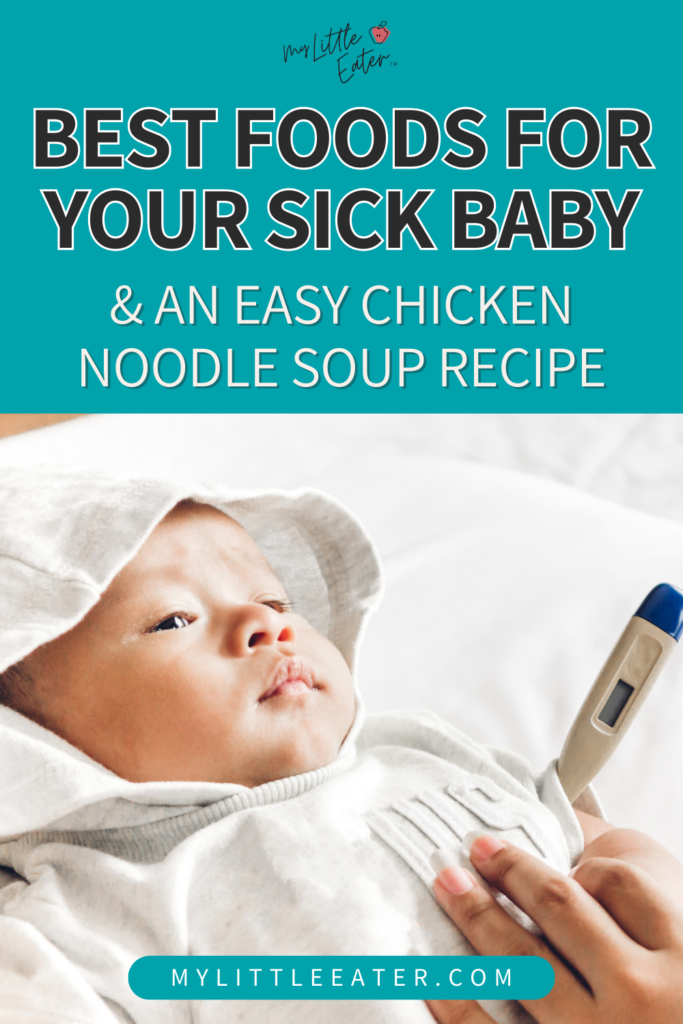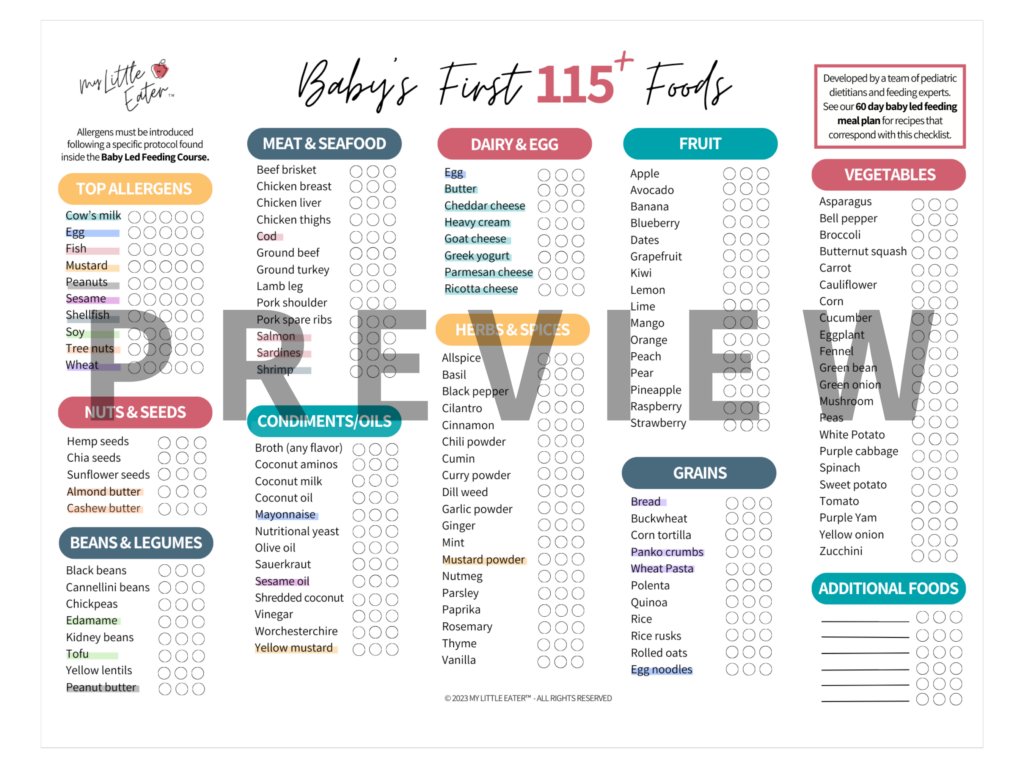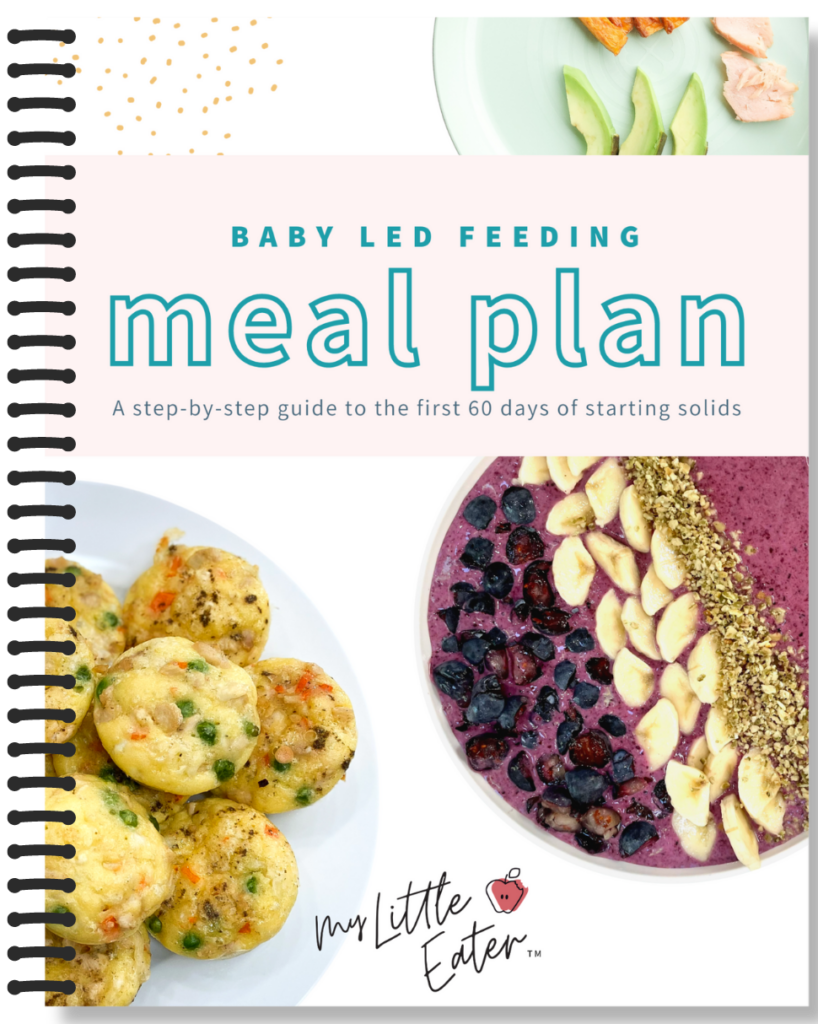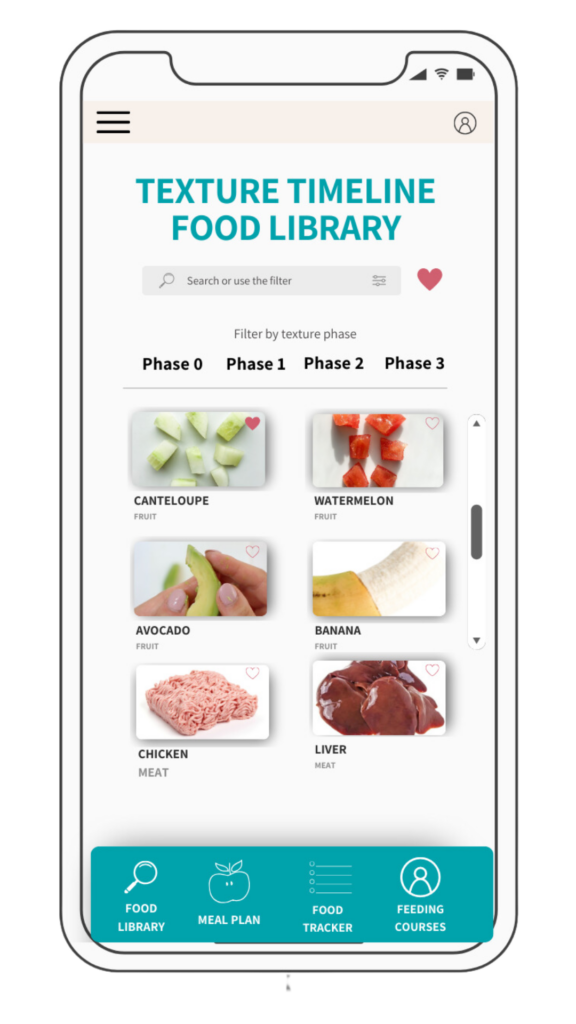- Originally Published: March 25, 2024
- No Comments
- Edwena Kennedy, RD
- Updated: January 20, 2025
This post may contain affiliate links, please view our disclosure policy for more details.
The most dreaded season of the year…germy, snotty, cough-every-two-seconds-and-get-your-siblings-sick-too season.
It’s hard enough watching your little one go through it but add on the pressure of trying to get them healthy and keep their nutrition up – even though they aren’t hungry and are refusing to eat – and this season is a long one.
From concerns about what to do if they eat nothing, to wondering how they’ll get enough iron and other important nutrients their body needs – we understand all the worries!
Let’s review what normal eating behaviors you can expect when your little one is sick, and what we recommend focusing on as far as nutrition concerns go!
Whether you’re just getting started with solids or are in the trenches of feeding a toddler – we can help!
Check out our online courses for starting solids with babies 6-10 months and feeding toddlers for babies and toddlers 10 months – 5+ years!
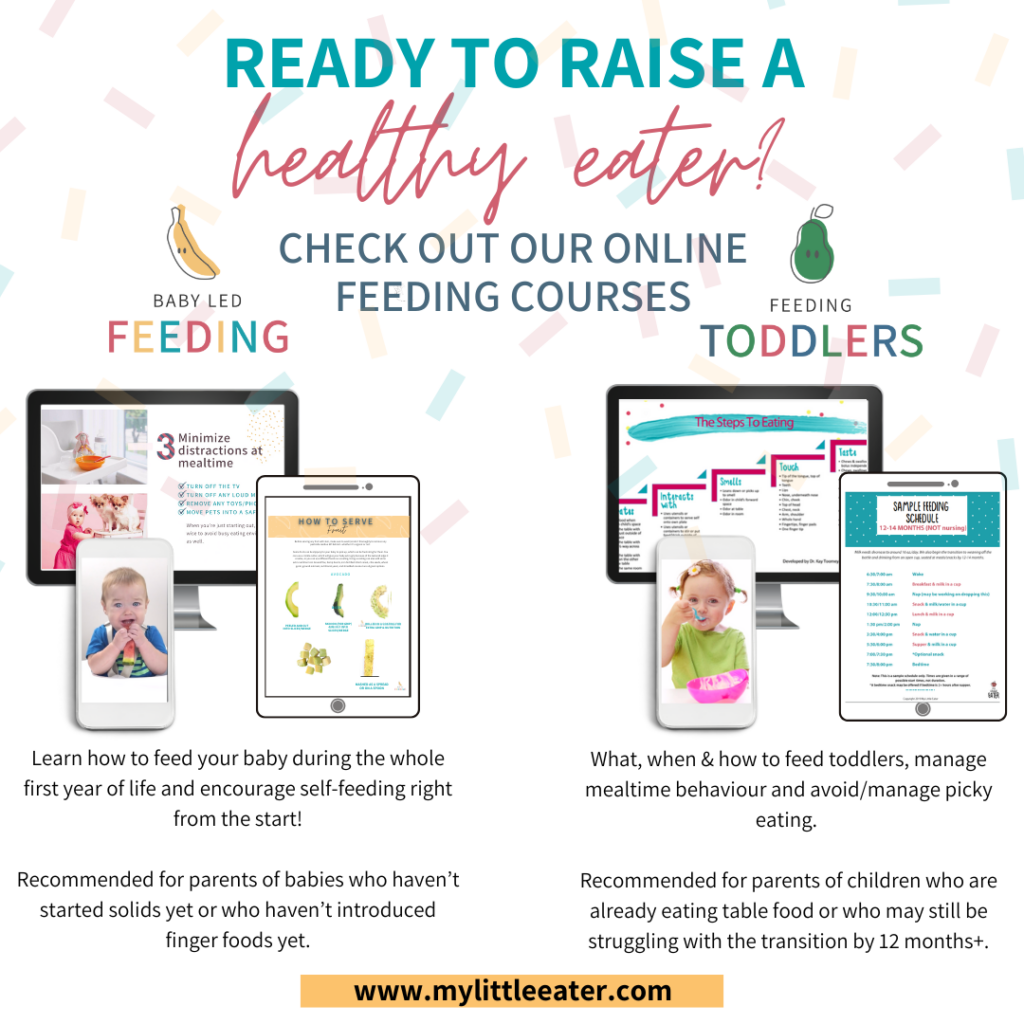
Table of Contents
If you’d rather listen to this info while multitasking, download the podcast episode below!
Changes to expect when your baby is sick
Depending on the severity of the illness, you may notice no significant changes in your baby’s behavior, or you could notice a lot of changes!

As you experience more sick seasons with your little one, you’ll begin to know what to expect and what their “normal” is when sick. This is helpful because it can alert you in cases where they seem to be more sick than usual and may need further medical attention.
Here are some of the most common changes babies and toddlers go through when they aren’t feeling well.
More snuggles and attention
This is a time when your little one is likely going to need some extra love and attention from you. This unfortunately means you may not be able to get a lot else done during the day – that’s ok! It happens to everyone, no one is doing it all (no matter what they say).
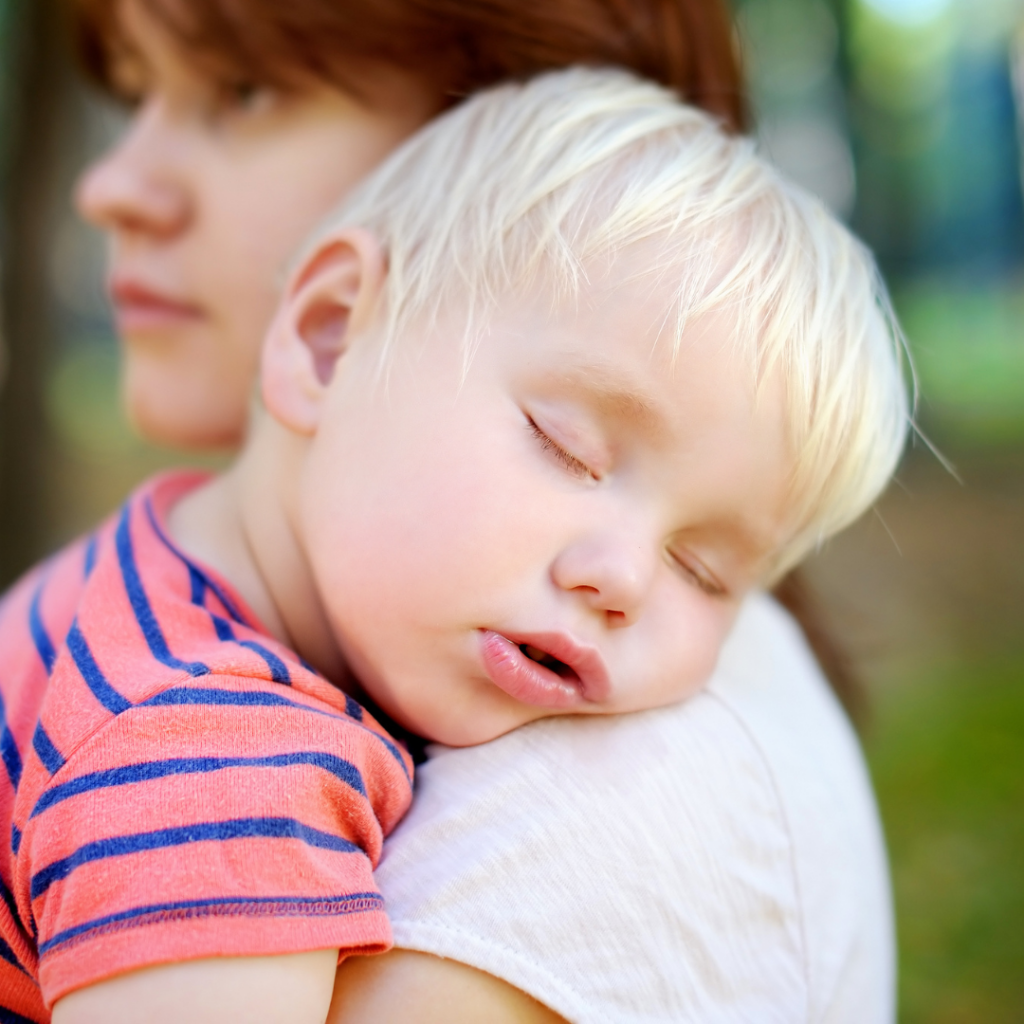
That said, we know it’s not realistic for everyone to drop everything, so here are some other things to try when you absolutely need to get stuff done:
- Break out your favorite baby carrier to keep your baby close but also be hands-free to get things done.
- Go for a walk outside to get some movement and fresh air which can be great for illness too.
- Set baby up in a safe area on the floor to play with some toys while you work from home close by.
- Let older babies or toddlers be entertained by their favorite program – turn on some Ms. Rachel while you work on other things!
All in all, prepare to be flexible and find things that work for both you and your baby.
Feeding and sleeping off schedule
If you’re a family that thrives on a schedule – whether it’s typically loose or to-the-minute exact – get ready to have that shift!

This is where a range of normal is possible and what you experience will be very baby and illness-dependent. Some babies will have terrible sleep patterns when sick…up all throughout the night, struggling to nap, and just in general very temperamental and overtired throughout the day.
Other babies will sleep more. They could need more daytime naps or just seem very groggy throughout the day. They may even sleep so well at night that you sleep terribly because you’re checking on them so often – we’ve been there!
The one thing we know for sure is that if their sleeping patterns are off, their feeding patterns will be off too. They may need more frequent milk feeds if they’re up often and need comfort or they may be so tired they sleep through a milk feed or solid food meal. Either is possible and can vary from illness to illness.
If at any point you’re concerned about the amount of energy they have, if they seem to have difficulty waking, are very lethargic, etc. consult your doctor and take them to urgent care or the emergency room if needed.

Particularly with respiratory illnesses, a decrease in energy and any sign of difficulty breathing warrants an immediate trip to the ER. It’s always best to trust your instincts and err on the side of caution when it comes to sick babies!
RSV is likely one of the respiratory illnesses you’ve heard a lot about and is frankly one of the scariest for young babies. Learn all you need to know about RSV from Dr. Orajiaka on the My Little Eater Podcast.
Decreased appetite
This is the one that we see a lot of parents worry about. It’s very normal to see a decrease in your baby’s appetite when they aren’t feeling well, whether that’s milk feeds or solid food meals.
Keep this in mind when you start to notice your child eating less at meals. Sometimes this even happens before other symptoms of illness and can be a good sign that something’s coming.
You may also notice them skip meals entirely and toddlers or older kids may say that they aren’t hungry when you tell them it’s time to eat. That’s ok too!
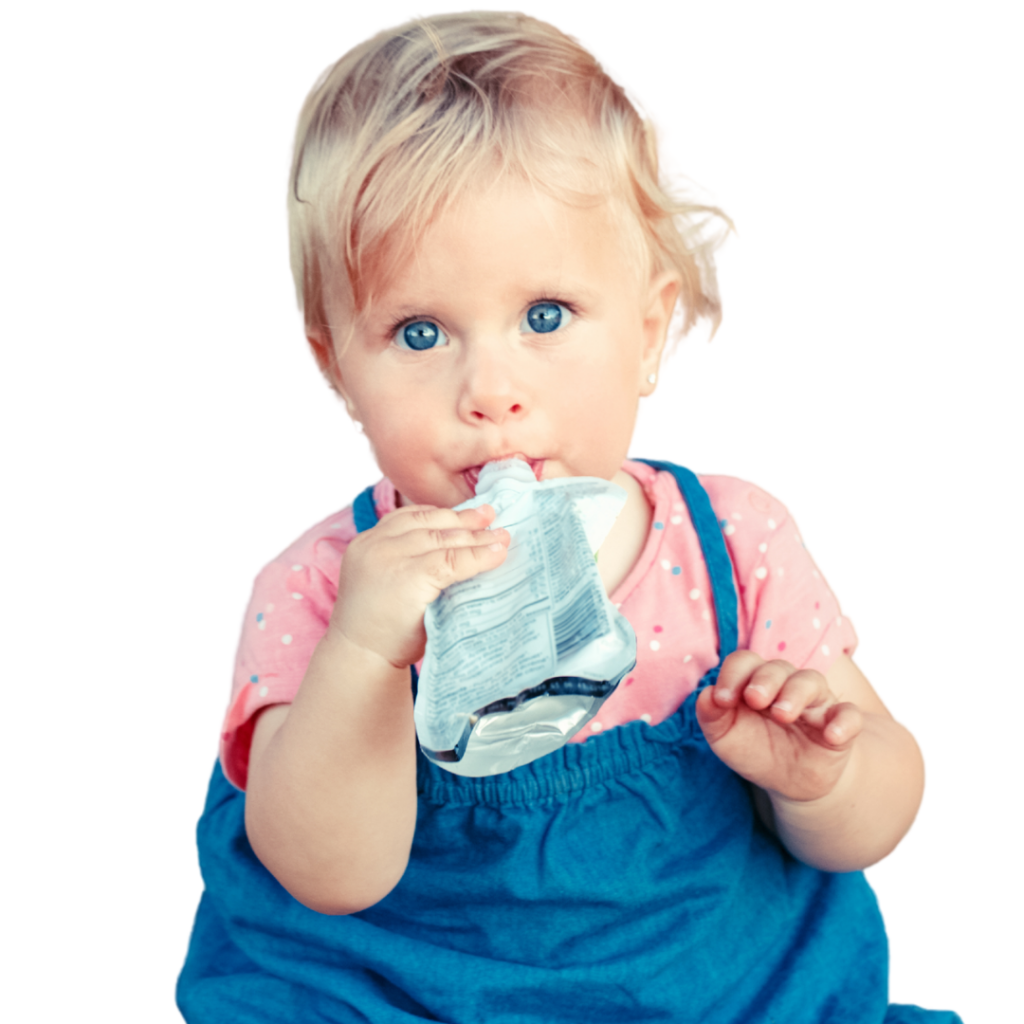
Another change you may notice is that they may be more interested in snacky, carby, or liquidy foods. Things like applesauce, yogurt, crackers, or popsicles.
And for babies, you could notice that they’re more interested in milk feeds than solid foods.
The majority of the time this is because they gravitate towards what is easiest for them to consume and requires the least amount of energy on their part. When it comes to milk feeds, they may be looking for comfort as well.
One exception to an increase in milk feeds that you may notice is when your baby is congested.
They may find it more difficult to nurse or drink a bottle when they can’t breathe through their nose. This may result in them becoming frustrated and upset prompting you to end the feeding early thinking they’re full.
We recommend using suction on their nose to help clear congestion before feeding to make it easier for them and ensure they can eat as much as they need.
What does this decrease in appetite mean for their nutrition?
We know they need proper nutrition to strengthen their immune system and give them energy to fight the illness.
At the same time, we know that digestion requires a lot of energy which may be better spent fighting the illness (especially in those first few days when they’re the sickest).
Meaning, don’t stress so much about each meal, and aim to find a balance by following our top 4 tips below.

Top 4 tips for feeding sick babies
#1: Keep a normal feeding routine
Their appetite cues probably give us the clearest picture of when they should eat when they get sick. The thing is…toddlers (especially) won’t always know to ask to eat (babies will cry for milk), or they’ll ask when they’ve reached a point of super hunger.
Hands down, the #1 best thing to do is to keep your normal feeding routine as much as possible! This is helpful for nutrition during an illness and for maintaining nutrition and decreasing pickiness after an illness.
That doesn’t mean they’ll eat food every time you offer it. Know this ahead of time and adjust your expectations.
It’s ok if they refuse a meal.

Their appetites lead the way when they’re sick – and always. All you have to do is be the reliable source that offers food at set intervals whether they ask for it or not.
Trust their body and instincts to do the rest in terms of whether food is accepted or how much is accepted.
If they ask for food outside of set meal and snack times, it’s ok to give it to them for a couple of days while things are really bad. Again, appetites (and sleep!) may be sporadic and it can be hard to predict when those opportunities to get some calories in may come around.
Try to get back to your regular routine as soon as you can.
#2: Focus on hydration
Since appetite may be down and the risk for dehydration through fever or diarrhea may be up, focusing on hydration during this time is key!

For babies under 1 year
The best thing to do is offer breast milk or formula frequently to drink, especially when they’ve refused solid food meals. Keep offering those meals if they’ve started solids, but let milk take over for hydration since they may not get enough if you’re too focused on solids.
Remember to watch for signs of dehydration because it can happen quickly in babies. You’ll need to watch for…
- Fewer wet diapers
- Dry lips and skin
- Strong-smelling and dark yellow urine
- Decreased heart rate or dizziness
- Decreased tears or crying without tears
- Lack of saliva
- Sunken eyes
- Sunken fontanel (soft spot on your baby’s head)
- Excessive fatigue
- Less playful than usual
This is true for toddlers as well, and it’s important that they get seen by a doctor if you’re concerned about dehydration.

For toddlers 1+ years old
The following is a list of beverages you can offer to your toddler to help keep them hydrated while sick.
- Breast milk
- Cow’s milk/kefir
- Plant-based milk/kefir
- Coconut water (diluted 1:1 ratio with water and only offered occasionally)
- Smoothies (include one of our favorite protein powders for added nutrition)
- Fruit juice (diluted 1:1 ratio with water and only offered occasionally, do not offer if experiencing diarrhea)
- Non-caffeinated tea in small amounts (¼ cup offered occasionally) like decaf green tea, ginger tea, lemon, echinacea, fennel, or chamomile
In addition to offering more beverages, make sure to offer lots of hydrating foods at meal and snack times.
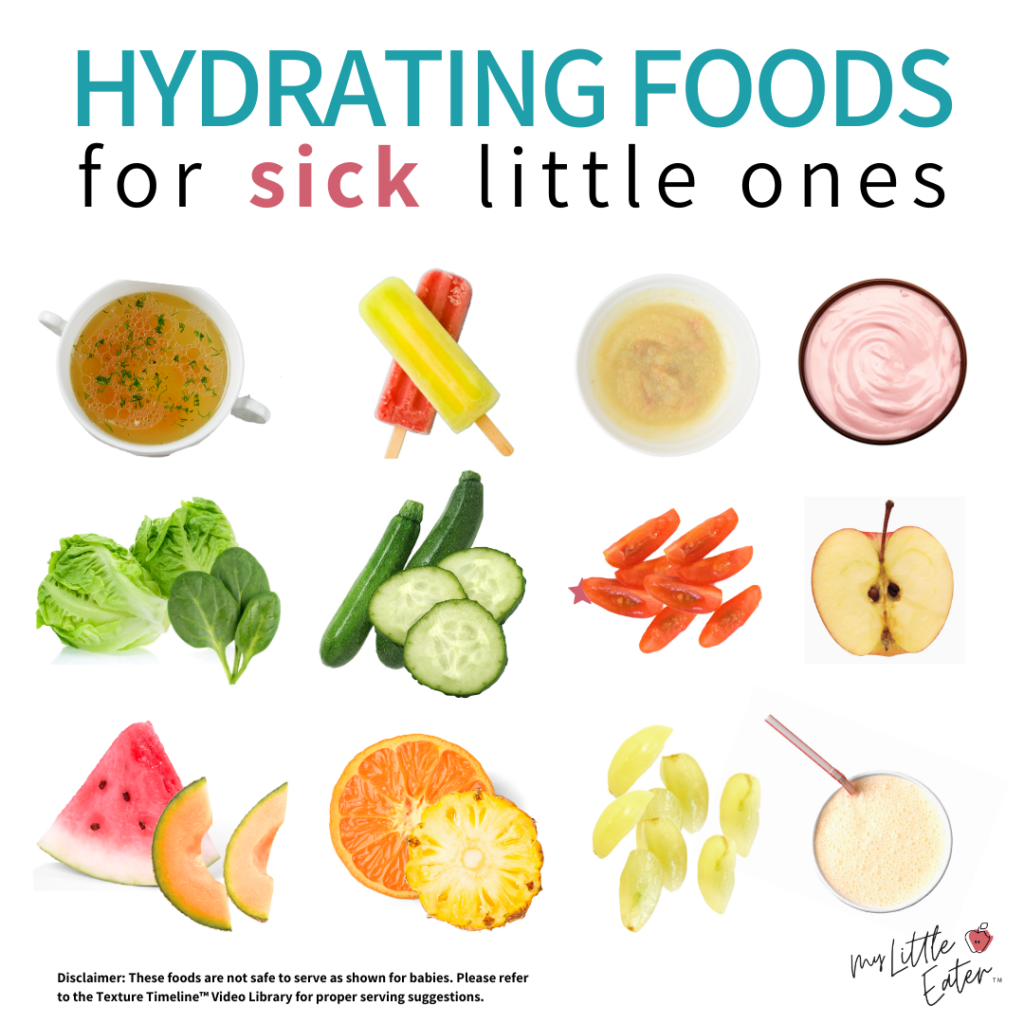
The best foods to maintain hydration levels for your sick child are…
- Broths and soups (see our delicious recipe below for inspiration!)
- Popsicles
- Applesauce
- Yogurt
- Cucumber
- Iceberg lettuce
- Tomatoes
- Zucchini
- Watermelon
- Cantaloupe
- Melon
- Oranges
- Pineapple
- Apples
- Spinach
- Grapes
These foods can be helpful for boosting hydration for babies under 1 year old as well if they’re still interested in solids while sick. Find out how to serve each of these foods safely inside our Baby Led Feeding program using our exclusive Texture Timeline™ Video Library!
The video library shows you how we recommend serving foods based on the phases of our Texture Timeline™, so no matter what phase your baby is in you’ll know how to offer food safely to them.
#3: Offer immunity-boosting foods
Garlic
Without a doubt, garlic is nature’s antibiotic. It’s known to have immense health properties and has positive (though still very preliminary) research showing that it can treat or reduce the duration of the common cold.
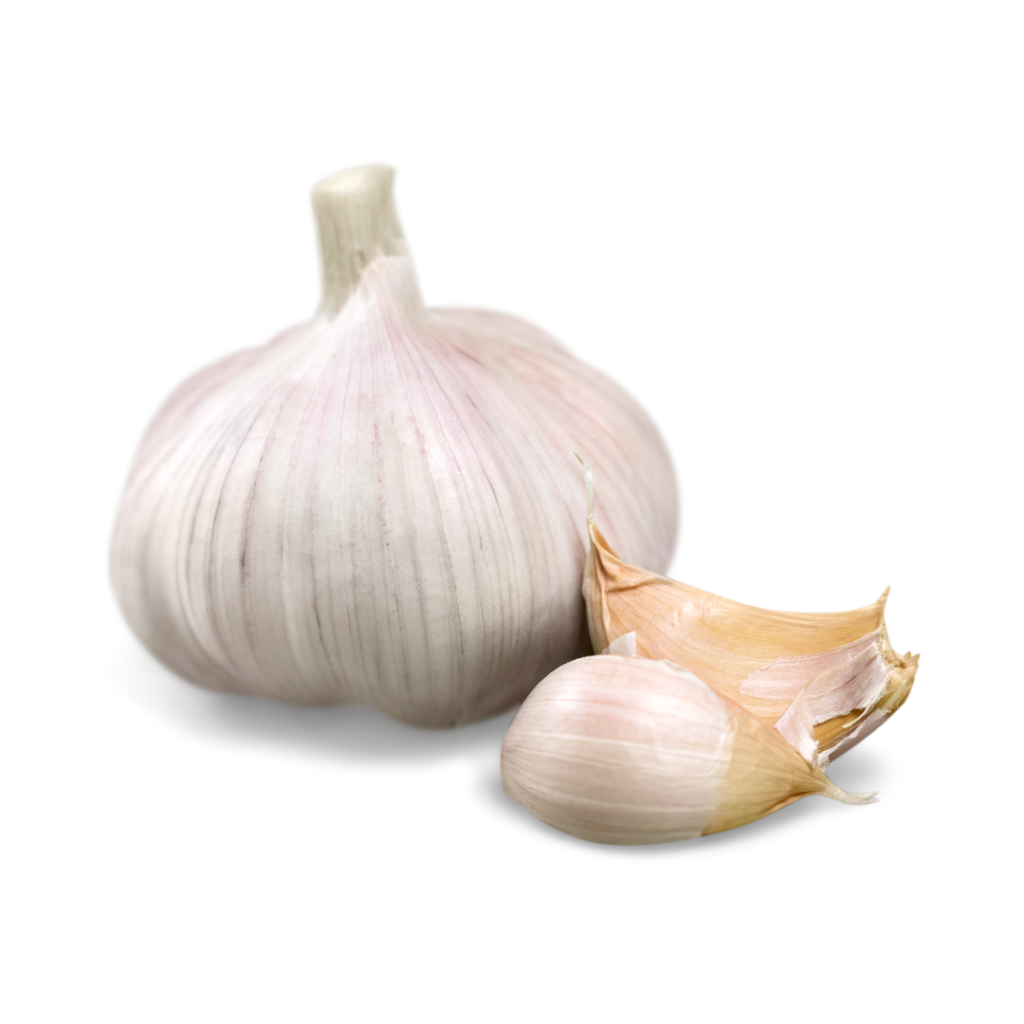
Although we can’t recommend a therapeutic dose yet, consuming lots of garlic (a garlic dip is our favorite choice) is a great practice to get into. This is especially important when you’re sick to help fight off microbes naturally.
Honey (over age 1 only)
100% pure honey is also antimicrobial and antibacterial and there have been studies that show its successful use as a cough remedy.
Try offering your toddler over 12 months of age 1.5-2 tsp of honey before bedtime. It can be diluted in a cup of warm water, drizzled onto toast, or served in a smoothie.
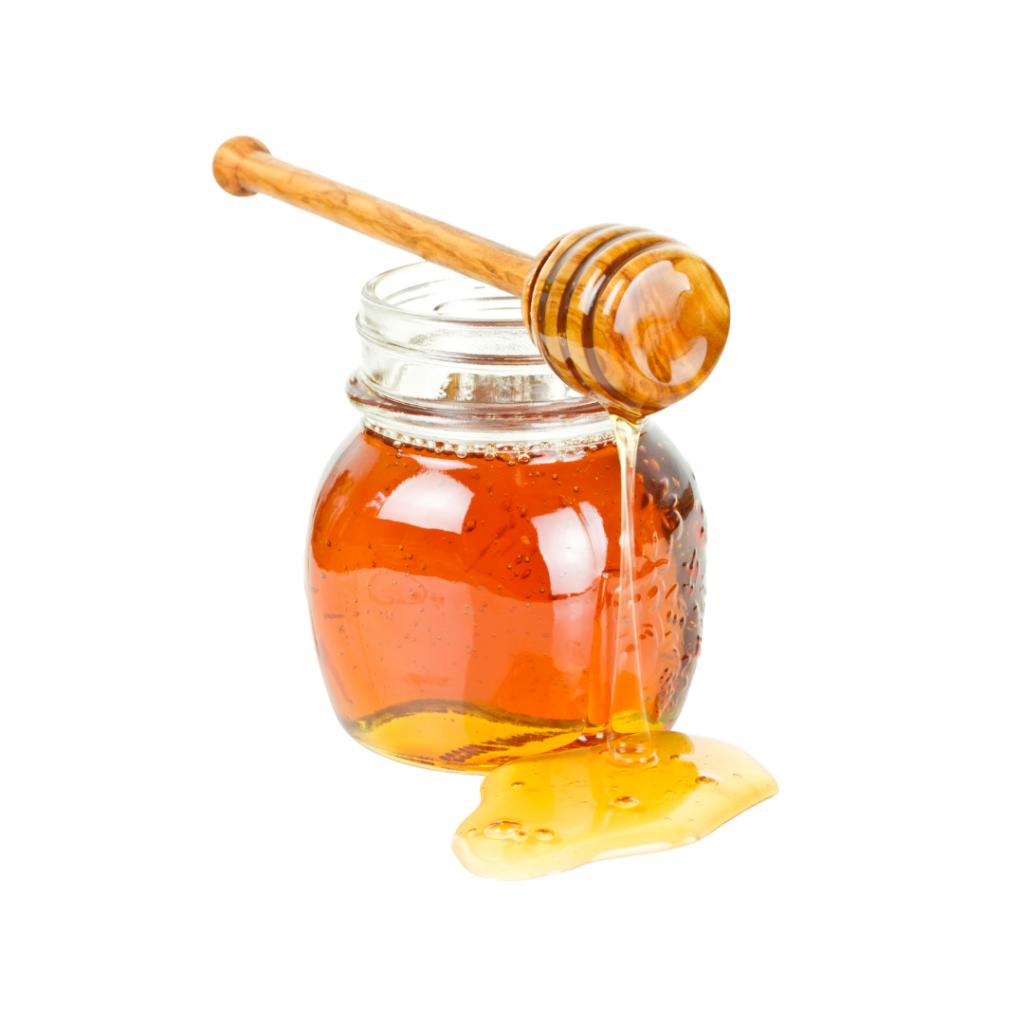
Elderberry
This has antiviral properties and is loaded with phytonutrients to strengthen the immune system. It also has compounds that can directly block a virus’s entry and replication in the body.
A few small studies have found that elderberry extract reduces the duration of colds and other upper respiratory tract infections by up to 4 days. Although they haven’t been conducted on children and more research is warranted, things look promising for it.

It’s best to take it within 24 hours of the onset of a cold/flu. However, keep in mind that there is not enough research to determine a safe medicinal dose.
Therefore, we can’t say with certainty what is safe – meaning you’re offering it at your own risk. If you are interested in trying it, you can find our favorite elderberry (and other!) supplements in our Amazon shop.
Note: Most elderberry products on the market state they are not safe for children under 2-4 years of age. Please read labels carefully and consult with your doctor before offering elderberry products to your baby.
#4: Avoid large portions and excessive catering
It’s understandable during this time that your baby or toddler may not be able to stomach certain foods or large amounts of them.
We suggest offering smaller portions of food initially so as not to intimidate your baby or toddler right away, especially if they have very little appetite.
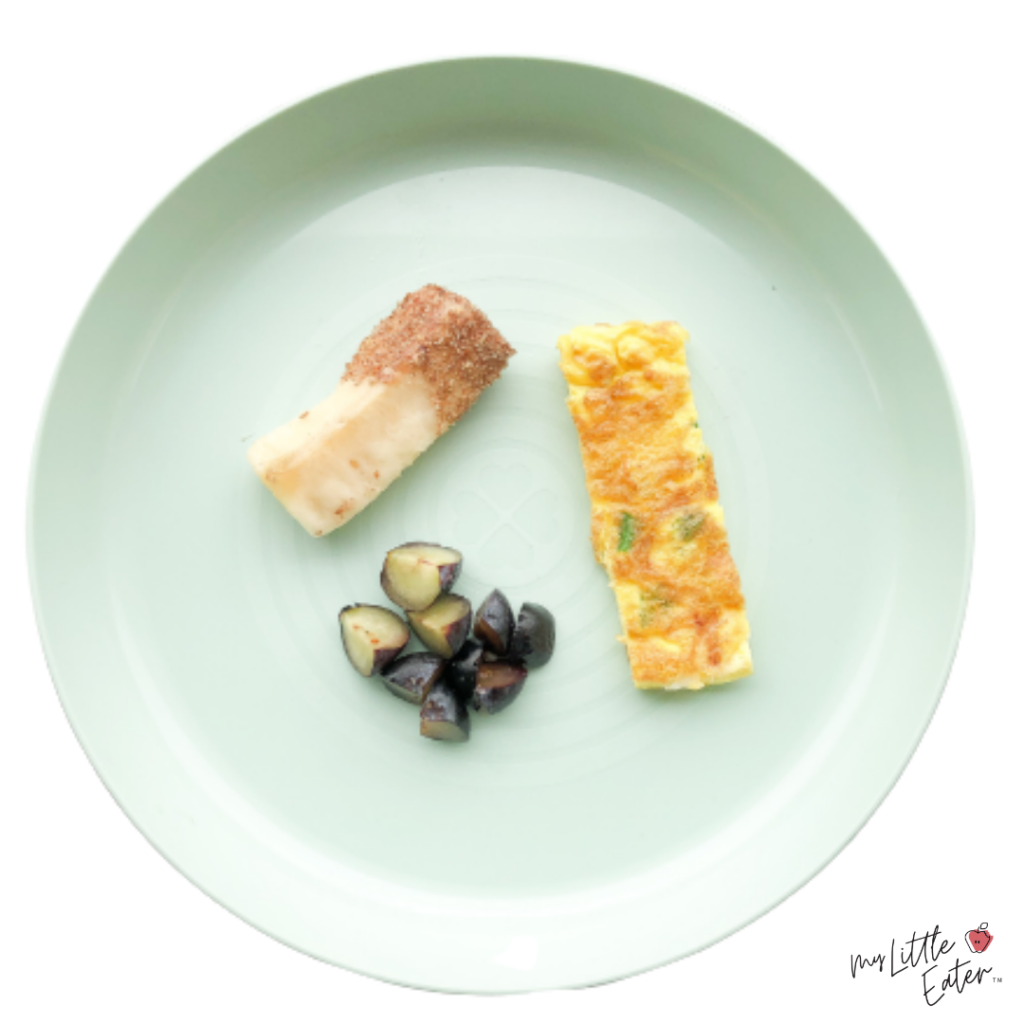
Sometimes if they get the impression that they have to eat all of the food on their plate, they may refuse it altogether. You can always replenish their plate with more food once they finish what is there.
We also don’t recommend completely catering to your child’s request for food…yes even when they’re sick!
We know that it’s hard – especially if they only feel like eating one specific thing. Our instinct is often to continue serving those same foods over and over to ensure they eat something.
It’s ok to do it once or twice to ensure they’re eating solids…but keep it as minimal as you can and instead focus on being considerate rather than catering.
This means that if you know they don’t have the energy to chew, or if they have a sore throat and it hurts to swallow, or if they have a stomach bug and certain foods upset their stomach, you can adjust the menu to accommodate those needs.
You may try offering soft and easy-to-eat foods like mashed potatoes, yogurt, oatmeal, and even puree pouches in these situations.
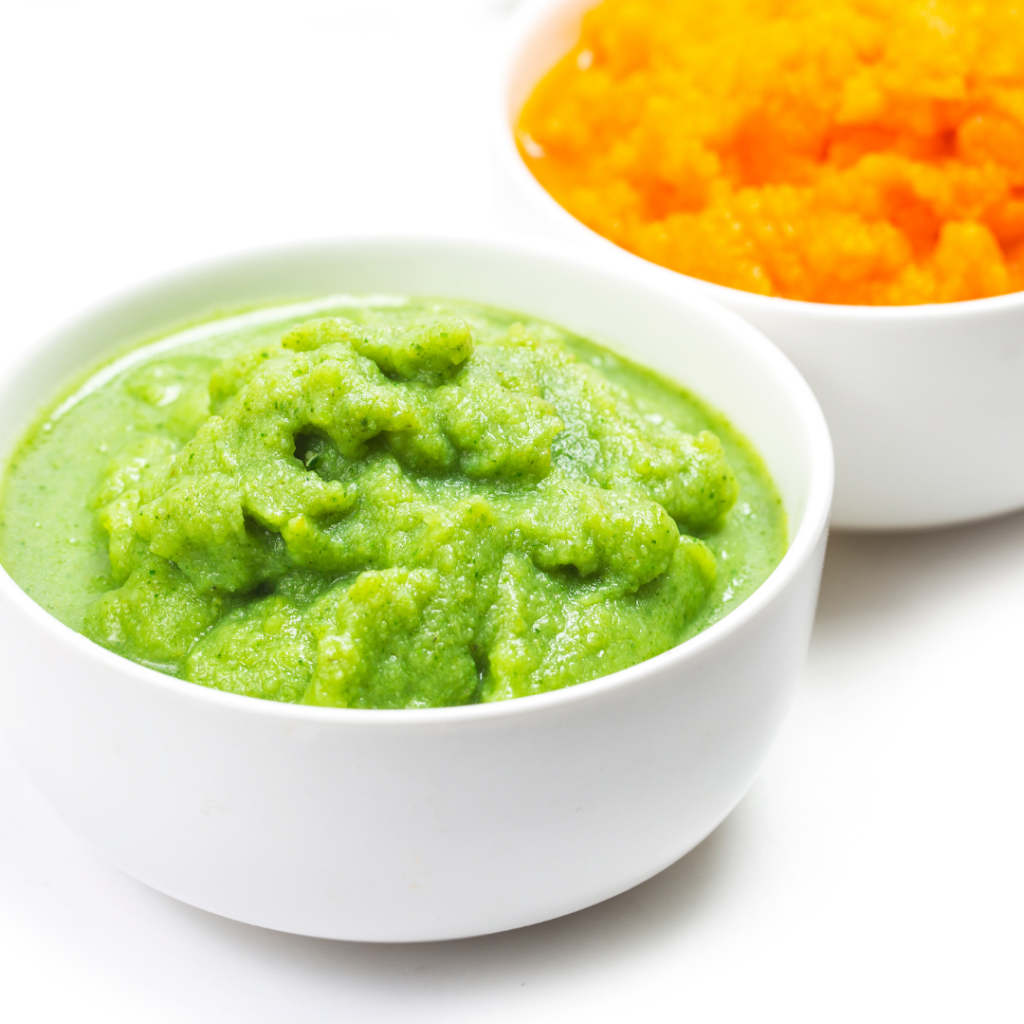
But – if you know that they prefer to eat these foods during this time…choose to offer them before they ask for them, and offer them alongside other nutrient-dense foods. Make sure to vary things so you’re not re-offering the same food for the next meal too.
This is in both of your best interests for after this is all over.
When they’re sick, it’s so easy to create a habit that they expect to continue afterward. Toddlers especially won’t be able to understand why it was ok to get the food they asked for one day and then the next be expected to eat what the rest of the family is eating.
How to get your sick child back on track after illness
Once they’re healthy again, you can expect their appetite to come back slowly. Sometimes it may look like they’re healthy (energy is back, no more symptoms, etc.) but their appetite just isn’t there.

Don’t stress – it can take a few days to even a week for their appetite to return. Keep calm and don’t resort to things like bribing or pressuring them to eat.
The best advice we have for you is to make sure to go back to offering variety and using the strategies and feeding schedules taught in our online courses no matter what.
There’s likely going to be some pushback and boundary testing at first (more so with toddlers and older kids), but consistency is key to a quick turnaround.
FAQs on feeding sick babies
Should you serve the B.R.A.T. diet when baby is sick?
There is no good evidence indicating that there is a need to feed your child bland foods like banana, rice, applesauce, and toast (B.R.A.T.) during bouts of diarrhea. There may be a benefit to including foods like rice and green bananas to help absorb some water and reduce stool volume.
However, children on the BRAT diet are more likely to experience important deficiencies in calories, protein, healthy fats, fiber, and several critical micronutrients.
We recommend focusing on what your baby can handle and what they seem to be keeping down without issue. If they can eat a curry when they’re sick…go for it! If all they can stomach is toasted bread and rice, then go for it. Just try to get variety in the diet as soon as possible.
Does milk and dairy increase mucus production?
We don’t have research directly showing that consuming milk and dairy increases mucus (phlegm) production. However, it may make the mucus more noticeable or thicker, which can cause discomfort for your little one.
This won’t be true for everyone, so follow what seems to be working for your baby. If you notice that they’re bothered by their mucus after consuming milk or dairy, go ahead and remove it from their diet until they’re healthy again.
Should you increase baby's vitamin C intake when sick?
There is no evidence that taking vitamin C supplements during an illness (ie. once cold symptoms have already appeared) will have any benefit. Additionally, research indicates that regularly taking vitamin C supplements doesn’t reduce the risk of becoming sick.
However, it is possible that those who do regularly take vitamin C supplements, may have a slightly reduced length of cold symptoms, and symptoms may be milder as well.
Therefore, we recommend ensuring that your child gets enough vitamin C regularly – through food – regardless of whether they’re showing symptoms of a cold or not.
Is Pedialyte safe for babies to have?
While Pedialyte is recommended for babies over 1 year of age, if your baby is under 1 year old you need to consult your doctor before offering it.
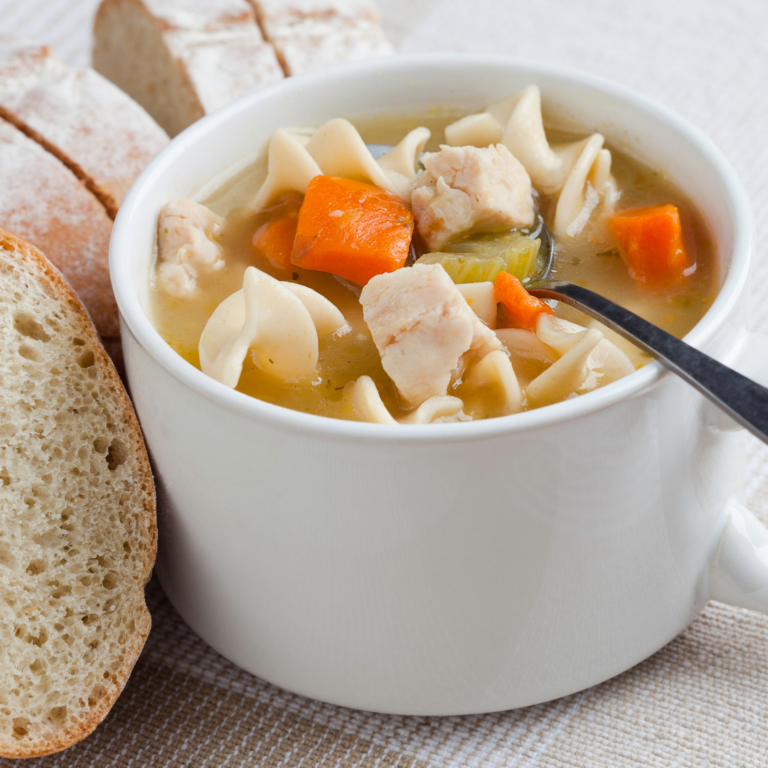
Slow Cooker Chicken Noodle Soup
Equipment
- 1 Slow cooker
Ingredients
- 1 lb chicken breasts (boneless, skinless)
- 1 medium yellow onion (diced)
- 2 large carrots (cut in 2-3 inch long sticks)
- 2 stalks celery (cut in 2-3 inch long sticks)
- 5 garlic cloves (minced)
- 6 cups chicken broth (no sodium added)
- 1 tsp. dried thyme
- 1 tsp. rosemary
- 3 dried bay leaves
- 6 oz. dry egg noodles
- ½ cup parsley
Instructions
- Add chicken breasts to the bottom of the slow cooker. Top with onion, carrots, celery, garlic, dried thyme, dried rosemary, and bay leaves.
- Pour in chicken broth, and gently stir to combine. Cover and cook on low for 6-8 hours, or high for 3-4 hours.
- Once done, remove chicken breasts from the slow cooker, and place in a large mixing bowl. Shred the chicken, making sure to leave some larger, finger-length pieces for your baby. Discard bay leaves and return the shredded chicken to the slow cooker.
- Stir in egg noodles and parsley, then cover and cook on low for 20-30 minutes, until soft.
- To serve the soup to your baby, strain the liquid out and offer the large pieces of carrot, celery, chicken, and egg noodles. Enjoy!
Notes
Pin to save for the next time your baby gets sick!
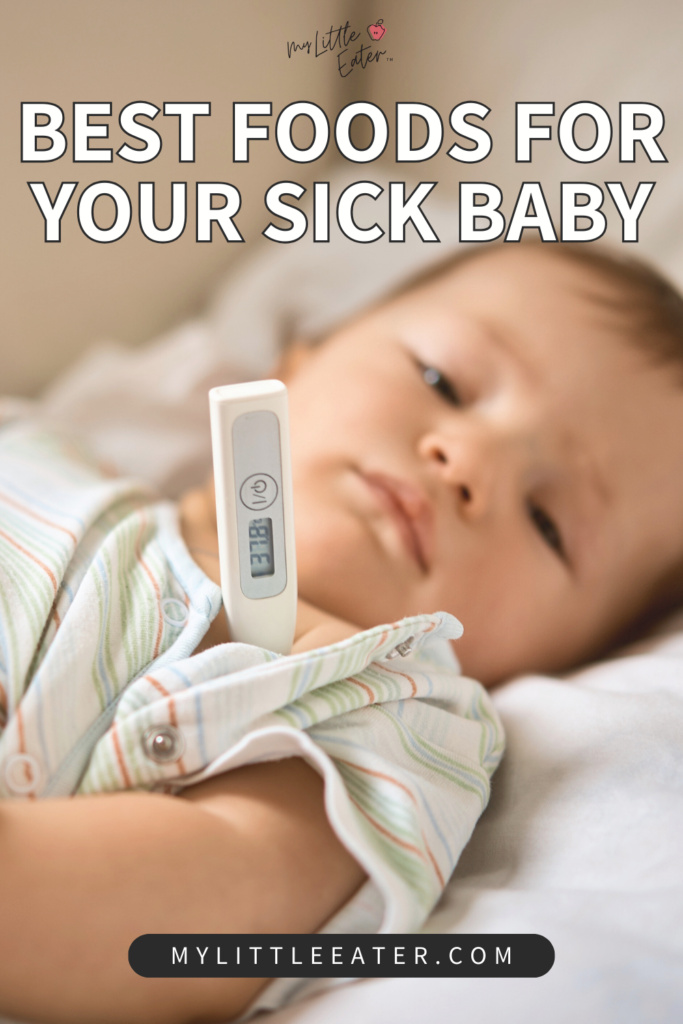
References
- Lissiman E, Bhasale AL, Cohen M. Garlic for the common cold. Cochrane Database Syst Rev. 2014 Nov 11;2014(11):CD006206. doi: 10.1002/14651858.CD006206.pub4. PMID: 25386977; PMCID: PMC6465033.
- Paul IM, Beiler J, McMonagle A, Shaffer ML, Duda L, Berlin CM Jr. Effect of honey, dextromethorphan, and no treatment on nocturnal cough and sleep quality for coughing children and their parents. Arch Pediatr Adolesc Med. 2007 Dec;161(12):1140-6. doi: 10.1001/archpedi.161.12.1140. PMID: 18056558.
- Shadkam MN, Mozaffari-Khosravi H, Mozayan MR. A comparison of the effect of honey, dextromethorphan, and diphenhydramine on nightly cough and sleep quality in children and their parents. J Altern Complement Med. 2010 Jul;16(7):787-93. doi: 10.1089/acm.2009.0311. PMID: 20618098.
- Herman Avner Cohen, Josef Rozen, Haim Kristal, Yoseph Laks, Mati Berkovitch, Yosef Uziel, Eran Kozer, Avishalom Pomeranz, Haim Efrat; Effect of Honey on Nocturnal Cough and Sleep Quality: A Double-blind, Randomized, Placebo-Controlled Study. Pediatrics September 2012; 130 (3): 465–471. 10.1542/peds.2011-3075
- Ashkin E, Mounsey A. PURLs: a spoonful of honey helps a coughing child sleep. J Fam Pract. 2013 Mar;62(3):145-7. PMID: 23520585; PMCID: PMC3601686.
- Zakay-Rones Z, Thom E, Wollan T, Wadstein J. Randomized study of the efficacy and safety of oral elderberry extract in the treatment of influenza A and B virus infections. J Int Med Res. 2004 Mar-Apr;32(2):132-40. doi: 10.1177/147323000403200205. PMID: 15080016.
- Tiralongo E, Wee SS, Lea RA. Elderberry Supplementation Reduces Cold Duration and Symptoms in Air-Travellers: A Randomized, Double-Blind Placebo-Controlled Clinical Trial. Nutrients. 2016 Mar 24;8(4):182. doi: 10.3390/nu8040182. PMID: 27023596; PMCID: PMC4848651.
- Zaitlin, Paige & Dwyer, Johanna & Gleason, Gary. (2013). Mistaken Beliefs and the Facts About Milk and Dairy Foods. Nutrition Today. 48. 135-143. 10.1097/NT.0b013e3182941c62.
- Thiara G, Goldman RD. Milk consumption and mucus production in children with asthma. Can Fam Physician. 2012 Feb;58(2):165-6. PMID: 22337739; PMCID: PMC3279269.
- Balfour-Lynn IMMilk, mucus and mythsArchives of Disease in Childhood 2019;104:91-93.
- Jim Bartley, Susan Read McGlashan, Does milk increase mucus production?, Medical Hypotheses, Volume 74, Issue 4, 2010, Pages 732-734, ISSN 0306-9877, https://doi.org/10.1016/j.mehy.2009.10.044.
- Maulen-Radovan I, Gutierrez-Castrellón P, Hashem M, Neylan M, Baggs G, Zaldo R, Ndife LI, Pollack PF, Santosham M. Safety and efficacy of a premixed, rice-based oral rehydration solution. J Pediatr Gastroenterol Nutr. 2004 Feb;38(2):159-63. doi: 10.1097/00005176-200402000-00011. PMID: 14734877.
- Centers for Disease Control and Prevention; Managing Acute Gastroenteritis Among Children: Oral Rehydration, Maintenance, and Nutritional Therapy. Pediatrics August 2004; 114 (2): 507. 10.1542/peds.114.2.507
- Baker SS, Davis AM. Hypocaloric oral therapy during an episode of diarrhea and vomiting can lead to severe malnutrition. J Pediatr Gastroenterol Nutr. 1998 Jul;27(1):1-5. doi: 10.1097/00005176-199807000-00001. PMID: 9669718.
- National Institutes of Health: Vitamin C

Edwena Kennedy, RD
Founder and lead Registered Pediatric Dietitian at My Little Eater Inc., creator of The Texture Timeline™, and mom of two picky-turned-adventurous eaters.

Edwena Kennedy, RD
Founder and lead Registered Pediatric Dietitian at My Little Eater Inc., creator of The Texture Timeline™, and mom of two picky-turned-adventurous eaters.
